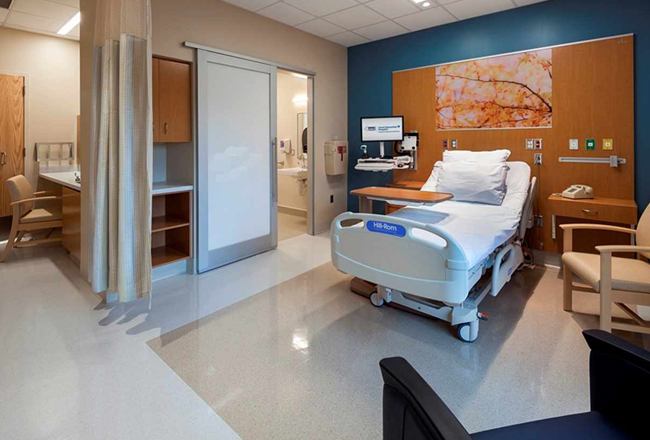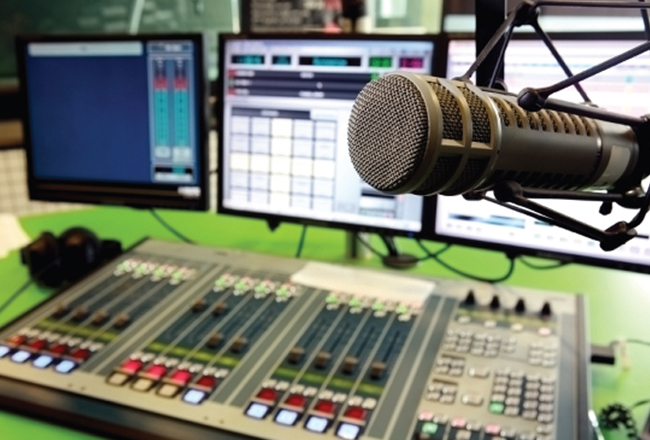There is something intangibly profound about the real impact that assistive technology can have on older adults.

To the average person, assistive technology is not something they have experience with ”” but later in life, most of us will likely require the use of technology to improve our quality of life.
In 2016, the U.S. Census found that citizens over 65 years of age increased to 16 percent of the population from 12 percent in 2000, and is projected to keep increasing as the baby boomer generation ages and medical technologies advance. This equates to a population of nearly 50 million people ”” they are our parents, grandparents, friends and relatives ”” and they rely on assistive technology every day.
From walkers and wheelchairs to canes and shower chairs, the benefits of assistive technology give older men and women the ability to walk, to wash themselves, to navigate their homes and communities and to remain as independent as possible.
An elderly grandmother traveled to visit her family for an extended stay and found many areas inaccessible. Her family decided to visit the Assistive Technology Loan Program at the Westchester Institute for Human Development and explore all the free options of possible supports that were available.
With the help of a shower chair, she was able to bathe herself with ease. With the help of additional railings, she was able to navigate the stairs in her family”™s home. With the help of modified utensils, she was able to cut and eat her own food. Assistive technology not only helped her with her self-care needs ”” she was also provided with a walker, which allowed her to walk anywhere she wanted, easily. She woke up every day excited. She navigated up the stairs, found her walker waiting at the top and walked outside every morning where she would grab a broom and gleefully sweep the fallen leaves off the home”™s side porch.
After her two grandchildren returned from school on the bus every afternoon, she was already waiting for them. The children would put the leash on their dog and all of them would walk up the street to the nearby golf course, where they would spend an hour wandering. Being able to walk through the fresh, autumn air, she was able to see the leaves change color and she was able to do so with her grandchildren at her side ”” a memory she cherished until the end of her life.
Assistive technology gave this grandmother the ability to walk when she was no longer comfortably able to do so alone, and because of that it allowed her to create memories with her family.
For older adults, assistive technology enables them to live happier lives. In the U.S., 7 percent of adults suffer from depression, but in the older populations, above 65, that percentage is nearly 20 percent, higher for those who have complicated medical histories. The National Institutes of Health urges older people to partake in daily exercise and maintain contact with their families to combat depression.
Assistive technology can give older adults increased mobility, and it can also allow them to better communicate with their families using modified cellphones or tablets.
The Assistive Technology Program at the Westchester Institute for Human Development has helped many people, but through its senior loan program, they have improved the quality of life of older adults significantly by providing them with life-changing technology.
Families, service providers and individuals can contact the AT program with questions about scheduling appointments, or general information about services offered. The loan program provides a free service to seniors who require assistive technology, in the hope that their lives may be improved.
As Izel Obermeyer, the director of the Assistive Technology Program, states, “assistive technology is a service that everyone must be aware of, because at one time or another in their life they may need our help. The devices that we have modified for our clients have without a doubt improved their lives, and it is something we continue to strive for every day.”
Alexander Steinmann is a pre-med student at the University of Washington, majoring in English and graduating in 2020. He worked at WIHD as a high school intern and then as an employee in the Assistive Technology Program for the past two summers. For general AT inquiries contact atp@wihd.org or 914-493-1317. For AT loan program inquiries contact bheyd@wihd.org or 914-493-7364.




















